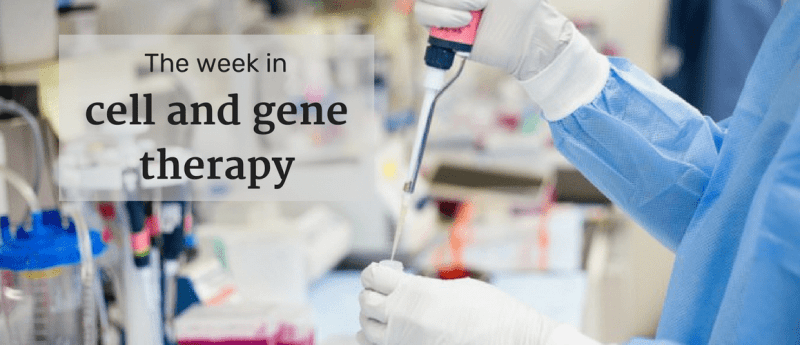Cell therapy weekly: Is stem cell transplant survival associated with procedure performance number?

The week: RMAT designation for Wiskott-Aldrich Syndrome therapy, EQT (NY, USA) to attain majority stake in Aldevron (ND, USA) and genetic modification of blood stem cells reverses blood disorder phenotypes.
The news highlights:
Stem cell transplant survival rate may increase in tandem with frequency of procedure performance
Wiskott-Aldrich Syndrome treatment received RMAT designation
EQT set to attain majority stake in Aldevron
Genetic modification of blood stem cells reverses blood disorder phenotypes
Stem cell transplant survival rate may increase in tandem with frequency of procedure performance
The Institute for Quality and Efficiency in Health Care (IQWiG; Cologne, Germany) has examined correlational evidence and found that treatment results, including patients’ survival rates, following autologous or allogeneic stem cell transplants were correlated with the frequency with which the procedures had been performed. The analysis was prompted by adjustments by the German Federal Joint Committee in 2017 to minimum annual volumes of patients required for German hospitals to provide certain treatments.
Eva Höfer, IQWiG Project Manager, commented: “In terms of mortality, we see a positive correlation between the volume of stem cell transplantations and treatment success. However, due to a lack of usable data, it is not possible to assess the effects of setting specific minimum volumes, for example, on patient mortality after stem cell transplantation. It therefore remains to be seen whether a case number of 25 cases per hospital location and year guarantees an optimal chance of survival for patients.”
Wiskott-Aldrich Syndrome treatment received RMAT designation
The FDA has granted Orchard Therapeutics (MA, USA) Regenerative Medicine Advanced Therapy (RMAT) designation for their Wiskott-Aldrich Syndrome (WAS) therapy. The treatment — OTL-103 — is an ex vivo, autologous hematopoietic stem cell-based gene therapy. RMAT designation may accelerate the manufacturing and marketing process of OTL-103 by qualifying Orchard for receipt of intensive FDA input and guidance throughout the development and review processes for OTL-103. Orchard may also receive FDA senior management support on trial endpoints and methods of satisfying post-approval requirements.
Anne Dupraz-Poiseau, Chief Regulatory Officer at Orchard, commented: “Securing RMAT designation for OTL-103 is an important step in expediting the product development and review of our planned biologics license application and recognizes the unmet need for children and young adults afflicted with WAS…We remain on track to file for regulatory approval of our WAS gene therapy program in the USA and Europe in 2021 in the hope of bringing this potentially curative therapy to patients as soon as possible.”
EQT set to attain majority stake in Aldevron
The EQT VIII Fund (EQT; Luxembourg) has announced that it is to obtain the majority stake interest in Aldevron (ND, USA). The acquisition aims to leverage EQT’s global reach and investment capabilities to advance Aldevron’s support of advanced therapy production. Aldevron is known for its novel GMP-SourceTM system, plasmids, RNA and gene editing enzymes that accelerate research, clinical trial and commercialization projects of potentially curative therapies.
Eric Liu, Partner at EQT Partners and Investment Advisor to EQT, commented: “EQT has followed the life science tools and gene therapy market closely for many years, and we believe Aldevron is uniquely positioned as a critical supplier to this rapidly growing market. [Aldevron] helps its clients deliver leading edge therapies that address previously uncurable medical conditions and improve patient lives around the world… We are excited to partner with Michael [Chambers, Co-Founder and CEO of Aldevron)] and his team to further develop Aldevron…in these exciting times.”
Genetic modification of blood stem cells reverses blood disorder phenotypes
For the first time, researchers at the Fred Hutchinson Cancer Research Center (WA, USA) have utilized CRISPR-Cas9 to modify the genomes of a subset of long-lived blood stem cells. This population of cells gives rise to all adult immune and blood cells. The genetic editing resulted in changes in protein expression levels of a magnitude capable of reversing the clinical phenotype of sickle cell disease. The results of this novel study suggest that modification of a select population of stem cells may effectively reduce both the costs of gene-editing treatments for blood disorders and the risks of adverse side effects.
Hans-Peter Kiem, Director of the Stem Cell and Gene Therapy Program, member of the Clinical Research Division at Fred Hutch and senior study author, commented: “Targeting this portion of stem cells could potentially help millions of people with blood diseases…By demonstrating how this select group of cells can be efficiently edited for one type of disease, we hope to use the same approach for conditions such as HIV and some cancers.”
For more weekly cell therapy news, read previous editions of the cell therapy weekly.